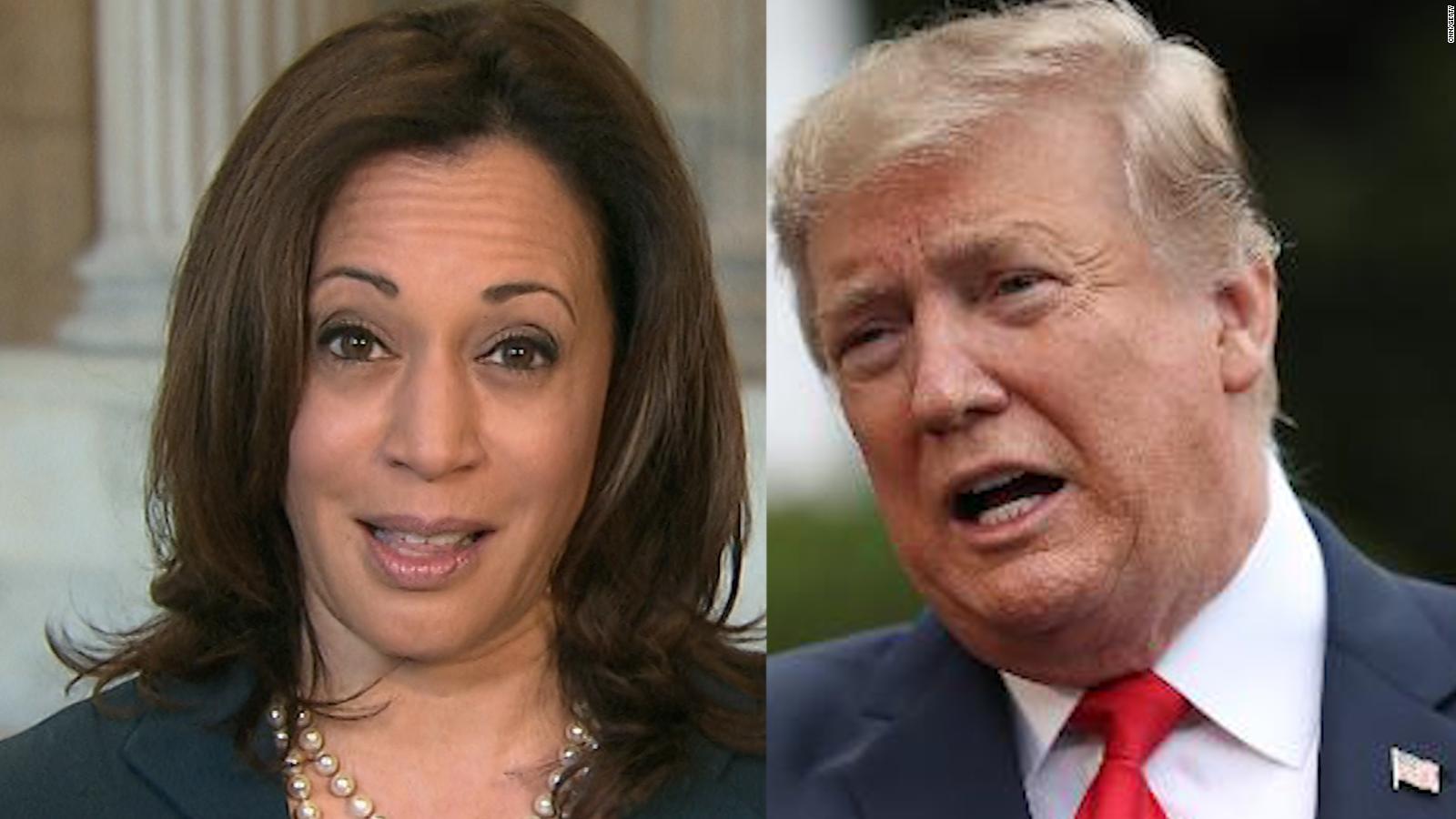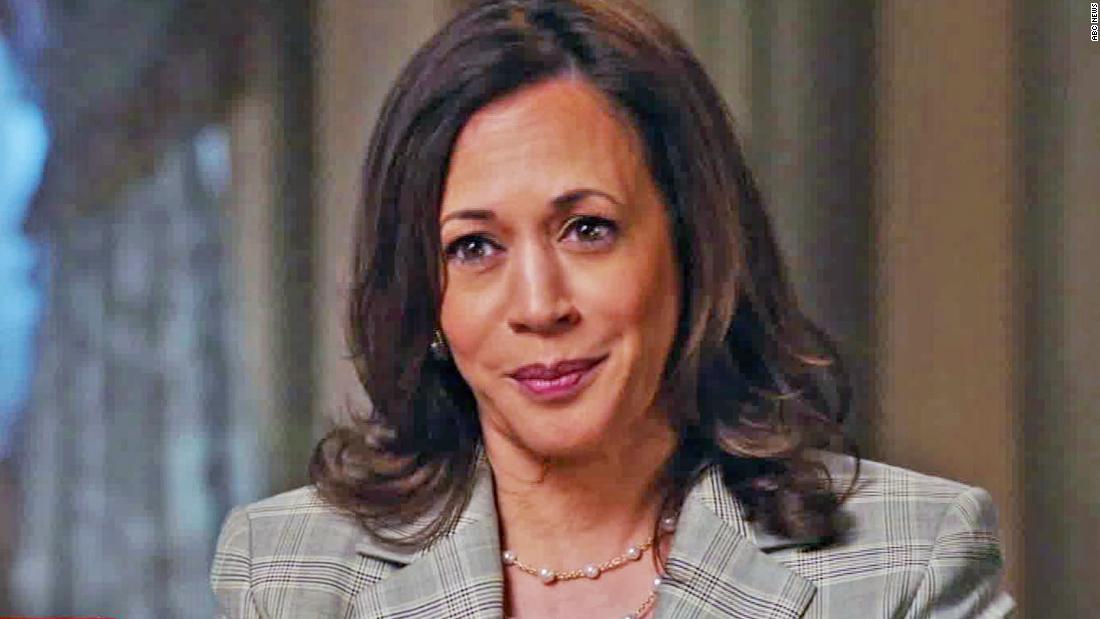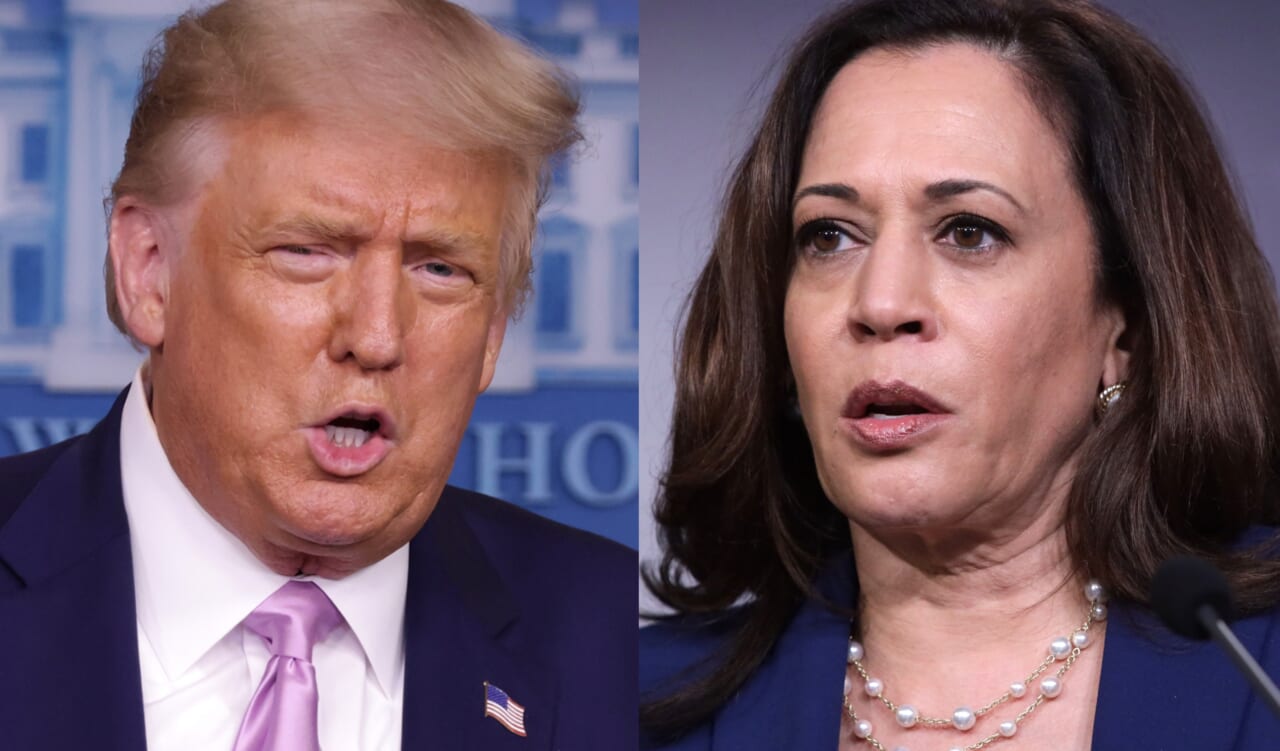When Donald Trump made headlines by calling Kamala Harris "a fucking bitch," it sent shockwaves through the political world and beyond. The comment, which surfaced during a private conversation, quickly became public and ignited debates about respect, gender politics, and the nature of political discourse in modern America. Whether you’re a Trump supporter or not, this incident raises important questions about how we talk about women in politics and the boundaries of acceptable language in public life.
Let’s face it, folks—Trump has never been shy about expressing his thoughts, whether they’re controversial or not. But this particular comment? It crossed a line that many didn’t expect him to cross, even by his standards. In this article, we’ll dive deep into what happened, why it matters, and how it fits into the broader context of Trump’s relationship with Kamala Harris and women in politics.
We’ll also explore how this incident reflects the current state of political discourse in the United States. Spoiler alert: It’s messy, it’s polarizing, and it’s definitely worth talking about. So, buckle up because we’re about to take you on a journey through the world of Trump, Kamala, and everything in between.
Read also:Hunter Fin The Ultimate Guide To Understanding This Rising Star
The Incident: What Exactly Happened?
Alright, let’s get down to brass tacks. The comment in question reportedly came from a leaked audio recording of a private conversation involving Donald Trump. In the recording, Trump allegedly referred to Kamala Harris as "a fucking bitch." Now, before we go any further, it’s important to note that this wasn’t just some random insult—it was part of a larger narrative that’s been brewing between these two political heavyweights for years.
Context Matters: Trump vs. Kamala
Trump and Kamala haven’t exactly been best friends since day one. Their rivalry dates back to Kamala’s time as a senator and her aggressive questioning of Trump administration officials during Senate hearings. Fast forward to the 2020 presidential election, where Kamala served as Joe Biden’s running mate, and the animosity only intensified. Trump has long viewed Kamala as a formidable opponent, and his comments often reflect that.
But here’s the kicker: This isn’t the first time Trump has used colorful language to describe Kamala. Over the years, he’s called her names like "phony" and "nasty." So, while the "bitch" comment might seem extreme, it’s part of a pattern of behavior that’s become almost trademark for Trump.
Why Does This Matter?
Now, you might be thinking, "So what? Politicians insult each other all the time." And you’d be right—to a certain extent. But this particular comment is significant for a few reasons. First, it reinforces stereotypes about women in politics being overly aggressive or emotional. Second, it highlights the double standard that exists when it comes to how men and women are treated in the public eye.
The Double Standard in Political Discourse
Let’s break it down. If a male politician were to criticize another male politician, chances are the language used would be more measured and professional. But when it comes to women, the language often gets personal and demeaning. This isn’t just about Trump—it’s a systemic issue that affects women across the political spectrum.
For example, studies have shown that female politicians are more likely to be subjected to gendered insults and attacks than their male counterparts. This creates an uneven playing field that makes it harder for women to be taken seriously in politics.
Read also:Spring Hill Brewing Your Ultimate Guide To Craft Beer Paradise
The Public Reaction
So, how did people react to Trump’s comment? Well, it depended on who you asked. Supporters of Trump largely dismissed it as "just politics," while critics saw it as yet another example of his lack of respect for women. Social media was ablaze with outrage, memes, and calls for accountability.
What the Critics Are Saying
Many critics argue that Trump’s comment sets a dangerous precedent. By using such language to describe a female politician, he’s normalizing disrespectful behavior and undermining the progress women have made in politics. Some even went as far as to say that it’s a form of sexism disguised as political commentary.
On the other hand, Trump’s defenders claim that he’s just being honest and that people are overly sensitive about language these days. They argue that politicians on both sides of the aisle use harsh language all the time, so why is Trump being singled out?
The Broader Implications
This incident isn’t just about Trump and Kamala—it’s about the state of political discourse in America today. In an era where polarization is at an all-time high, language matters more than ever. The words we choose to use can either bring people together or drive them further apart.
Can We Do Better?
The short answer is yes. But it won’t be easy. It requires a collective effort from politicians, journalists, and citizens alike to elevate the conversation and focus on substantive issues rather than personal attacks. It also requires us to hold people accountable when they cross the line, regardless of their political affiliation.
Trump’s History with Women in Politics
To understand why Trump’s comment about Kamala is so significant, you have to look at his track record when it comes to women in politics. Over the years, Trump has faced numerous accusations of sexism and misogyny, from his infamous "grab them by the pussy" remark to his treatment of female opponents on the campaign trail.
Key Examples of Trump’s Behavior
- Calling Megyn Kelly "a nasty woman" during a presidential debate
- Making derogatory comments about Hillary Clinton’s appearance
- Referring to Elizabeth Warren as "Pocahontas" in a mocking tone
These examples, among others, paint a picture of a man who doesn’t always treat women with the respect they deserve. And while some might argue that it’s just his personality, the reality is that words have consequences, especially when they come from someone in a position of power.
Kamala Harris: Who Is She, Really?
Before we move on, let’s take a moment to talk about Kamala Harris. Love her or hate her, there’s no denying that she’s a trailblazer in the world of politics. As the first Black and South Asian woman to serve as Vice President of the United States, she’s broken barriers and inspired countless others to follow in her footsteps.
| Name | Kamala Devi Harris |
|---|---|
| Date of Birth | October 20, 1964 |
| Place of Birth | Oakland, California, USA |
| Profession | Politician, Attorney |
| Education | Howard University, University of California, Hastings College of the Law |
Her Journey to the White House
Kamala’s rise to power has been nothing short of remarkable. From serving as the Attorney General of California to becoming a U.S. Senator, she’s consistently proven herself to be a formidable force in the political arena. And while her tenure as Vice President has been met with both praise and criticism, there’s no denying that she’s left a lasting impact on American politics.
The Role of Media in Shaping Public Perception
The media plays a crucial role in shaping how we view politicians and their actions. In the case of Trump’s comment about Kamala, the media coverage was extensive and varied depending on the outlet. Conservative media outlets largely downplayed the comment, while liberal outlets focused on its implications.
How Media Bias Affects Public Opinion
Media bias isn’t a new phenomenon, but it’s become more pronounced in recent years. When outlets selectively report on certain aspects of a story while ignoring others, it can lead to a skewed understanding of events. This is why it’s so important for consumers of news to seek out multiple perspectives and think critically about what they’re reading.
Conclusion: Where Do We Go From Here?
So, there you have it—the inside story on Trump calling Kamala "a fucking bitch." While the incident itself is shocking, it’s part of a larger conversation about respect, gender politics, and the future of political discourse in America. As we move forward, it’s up to all of us to decide what kind of language and behavior we’re willing to accept from our leaders.
And hey, don’t just sit there—get involved! Leave a comment below and let us know what you think. Share this article with your friends and family and keep the conversation going. Because at the end of the day, the health of our democracy depends on all of us working together to create a more respectful and inclusive society.
Table of Contents
- The Incident: What Exactly Happened?
- Context Matters: Trump vs. Kamala
- Why Does This Matter?
- The Double Standard in Political Discourse
- The Public Reaction
- The Broader Implications
- Trump’s History with Women in Politics
- Kamala Harris: Who Is She, Really?
- The Role of Media in Shaping Public Perception
- Conclusion: Where Do We Go From Here?


